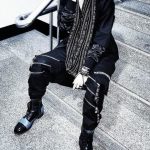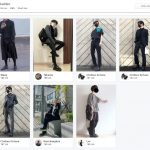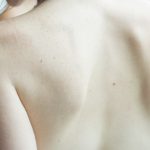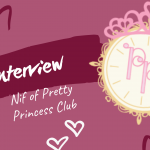Fantastic Fashion Photos—On Your Phone
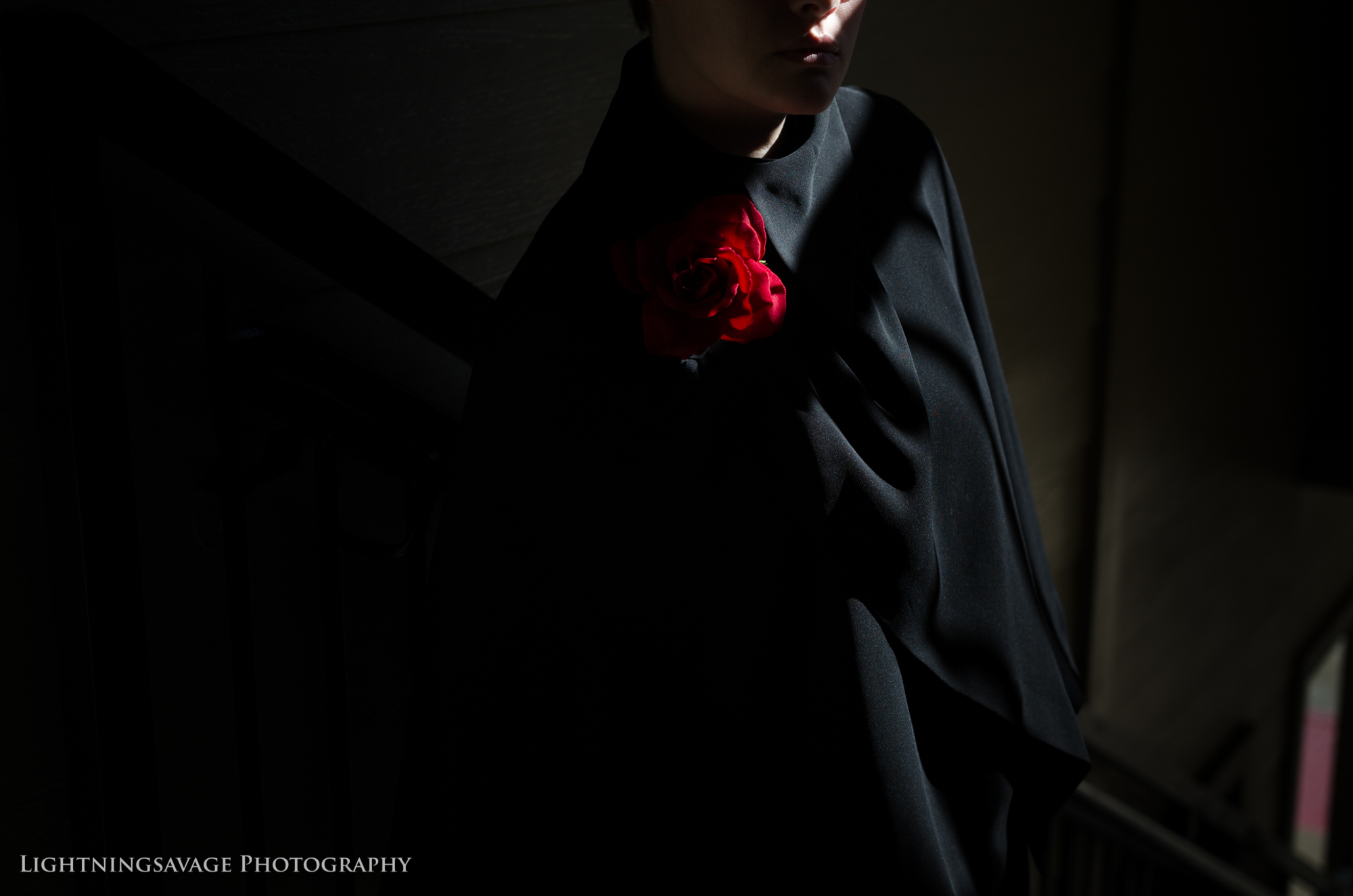
Not everyone has a DSLR. And not everyone wants that investment. However, something the photography community has been trying to debunk for a while now is the assumption that the equipment makes the photographer—in other words, the photo is only as good as the equipment used to take it.
This is simply not true and, as a photographer myself who happens to have a DSLR, is a bit insulting. Many photographers including myself have worked years honing our abilities to get where they are. It takes an eye to make great photography, and some sort of camera. It doesn’t matter if it’s a point and click camera from 2009 or your phone, or a top-of-the-line Canon, any camera can take amazing images. It’s just up to the person to see them.
So how can you do it? Below I’ve written about my top tips for getting great coord shots just about anywhere, and with any camera!
The Selfie

Kal Frenzel and Bree Love
There’s nothing wrong with a good selfie. Find the right light, and your selfie game can be on point!
Selfie mode on your camera can also be used to take creative photos where it’s not just a normal selfie, like above.
Look For Unique and Interesting Things
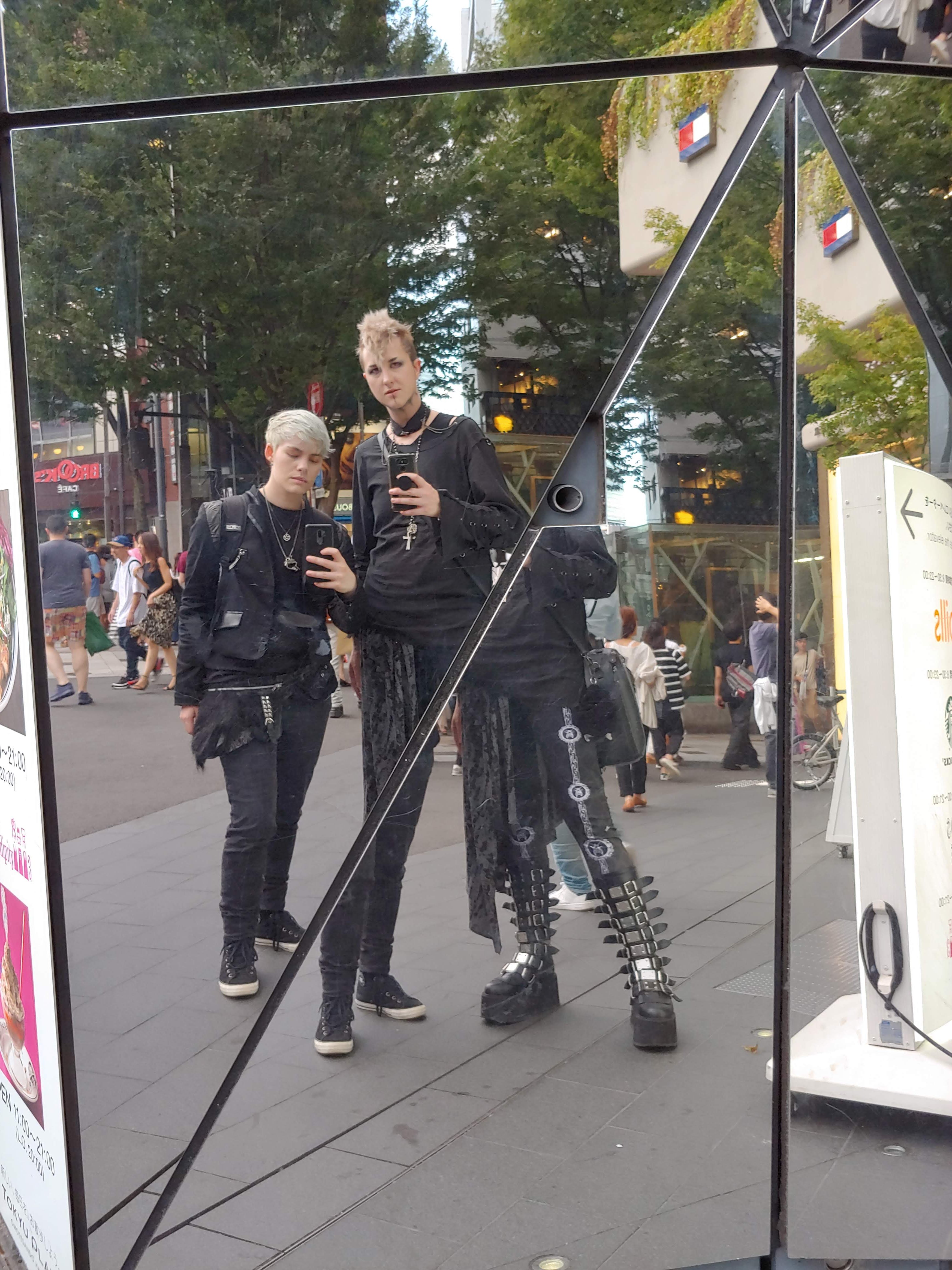
Kal Frenzel and Collin Quinlan
Reflections
Reflections add tons of visual interest. Mirrors especially can play with your reflection and make everything pretty interesting, like the photo above. Always be on the lookout for mirrors, cool reflections, shiny floors, and more. I wouldn’t make every photo a reflection photo, but they can be pretty fun to experiment with, especially if it’s hard to differentiate between the reflection and reality.

Kal Frenzel. Photo by Bree Love
Signs
There’s not much that says “street style” than posing next to a sign. I like to look for signs that aren’t around busy surroundings, so that it doesn’t take away from my coordinate.
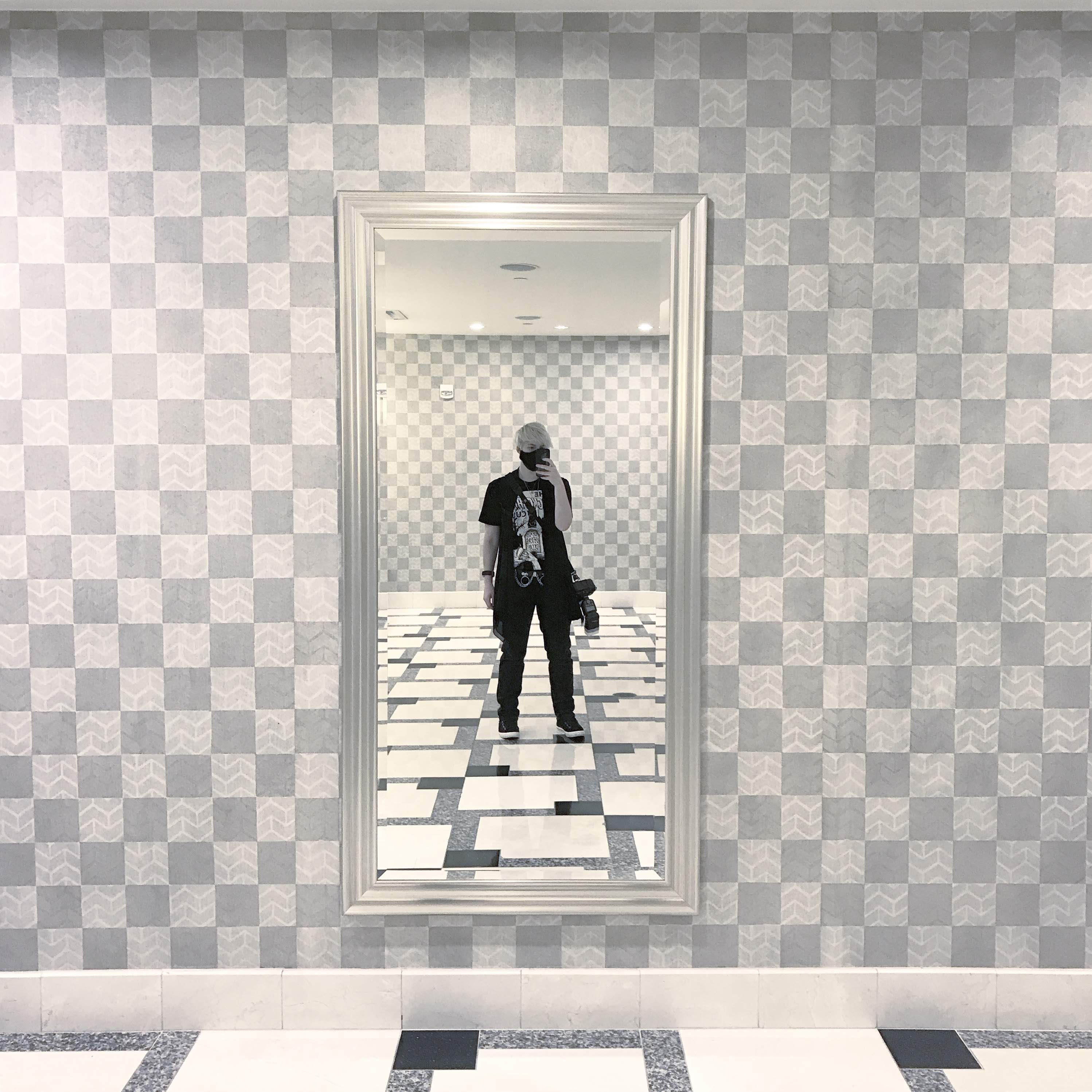
Kal Frenzel
Patterns
Patterns are a cool way to make your photos more interesting. I like walls with patterns, cool architecture, etc.
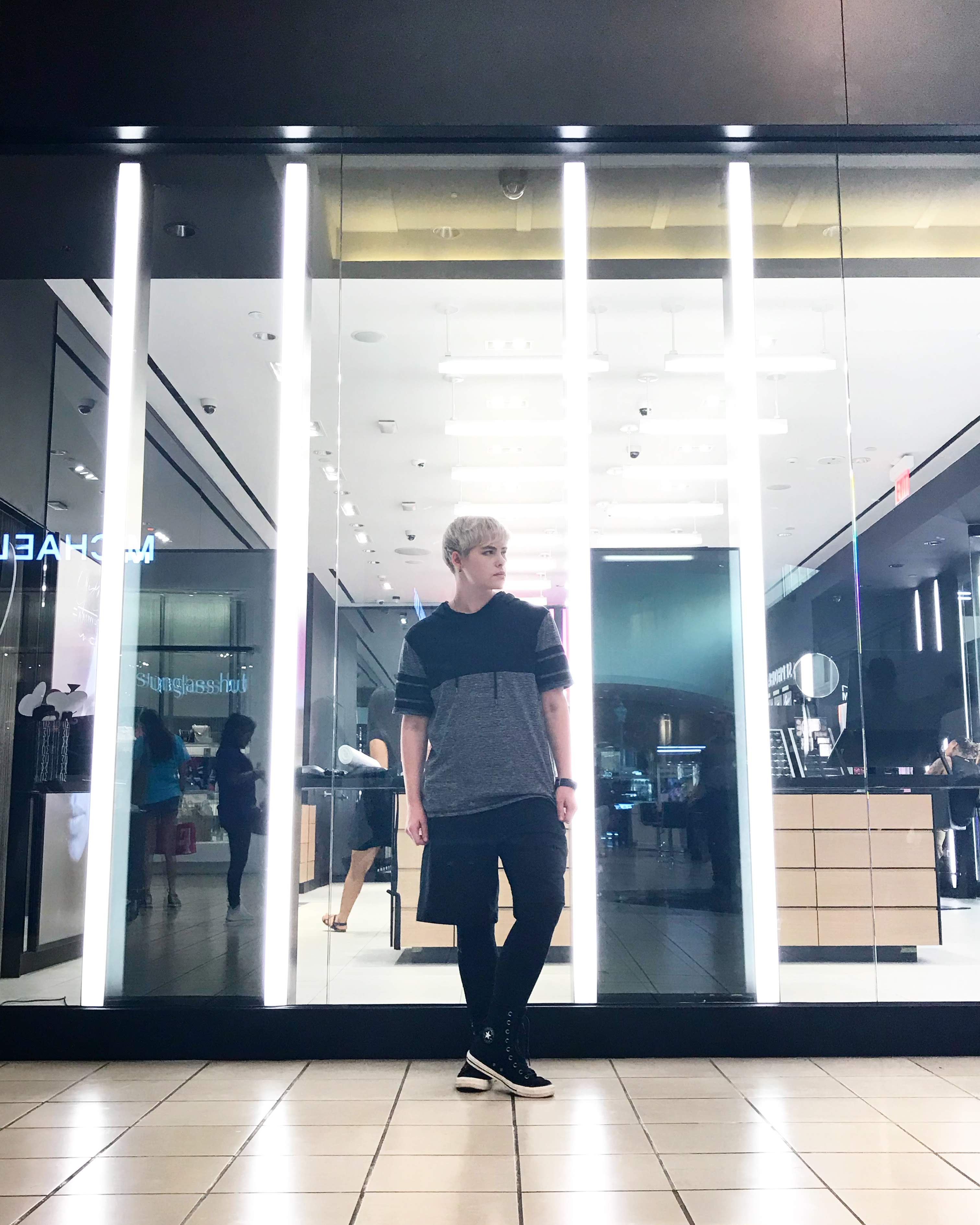
Kal Frenzel. Photo by Bree Love
Interesting Lighting
This one should go without saying, but I’ve found that, even with myself, I need reminders to look for those cool lighting opportunities!
The human eye naturally goes to either the brightest area in a photo or, if you’re wearing darker colors for example, the area with the highest contrast. That’s why posing in front of a light-colored wall when you’re wearing all black has such a high impact.

Bree Love | Kal Frenzel. Photo by Bree Love
Light can help you with bright areas and contrast. For the photo above, I used a street/construction light as a rimlight—a light in photography used to illuminate the back of someone’s head, so you get a nice lit rim around their hair, outfit, etc. In the photo taken by Bree, the Christmas lights ended up being a slight rimlight too!
I love rim lighting and backlighting. Used properly, it can be very flattering. Just remember that can also highlight unflattering areas too, just like highlighting the wrong area in makeup. Use it to your advantage and light areas you want to bring out. Leave areas you don’t like in shadow.
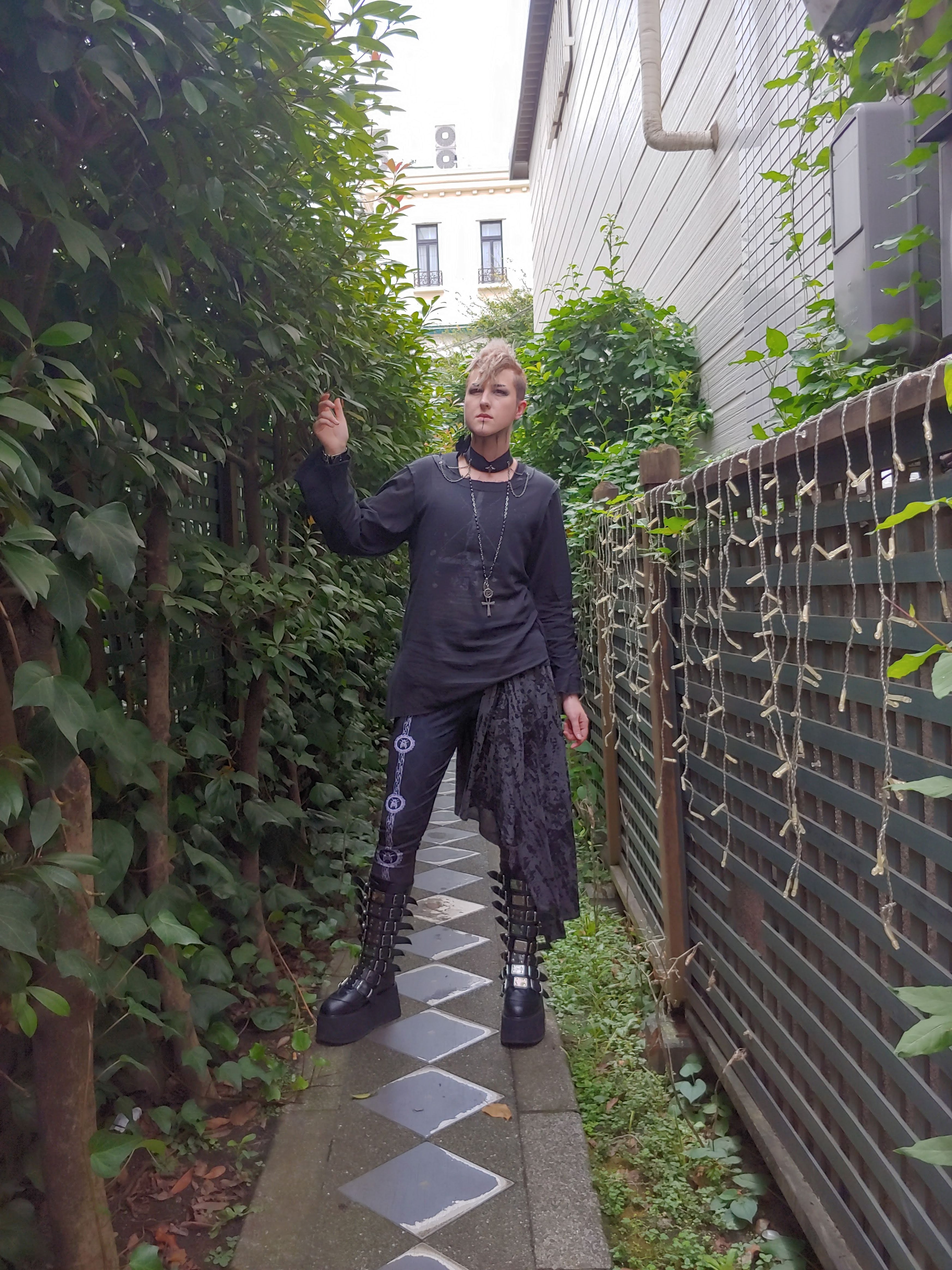
Collin Quinlan
Leading Lines
When out and about, look for leading lines. These lines are lines that help give you perspective, draw attention, and more. They lead the human eye through the photo, and by using these lines to their advantage, photographers are able to manipulate viewers’ eyes and how they physically see a photo. A simple example of leading lines is the corners of a hotel hallway when you look down it—your eye naturally wants to look at the end of the hallway instead of at a certain room.
The best way to describe leading lines is to show you. Below, I’ve linked a few images just as a reference for you.
https://www.instagram.com/p/BtbkVAXANOo/?utm_source=ig_web_button_share_sheet
https://www.instagram.com/p/BtbjB2OHi0V/?utm_source=ig_web_button_share_sheet
Once you can recognize leading lines, you can use them in your own photography—like the photo above the header of this section.
Don’t Be Afraid of Mirroring
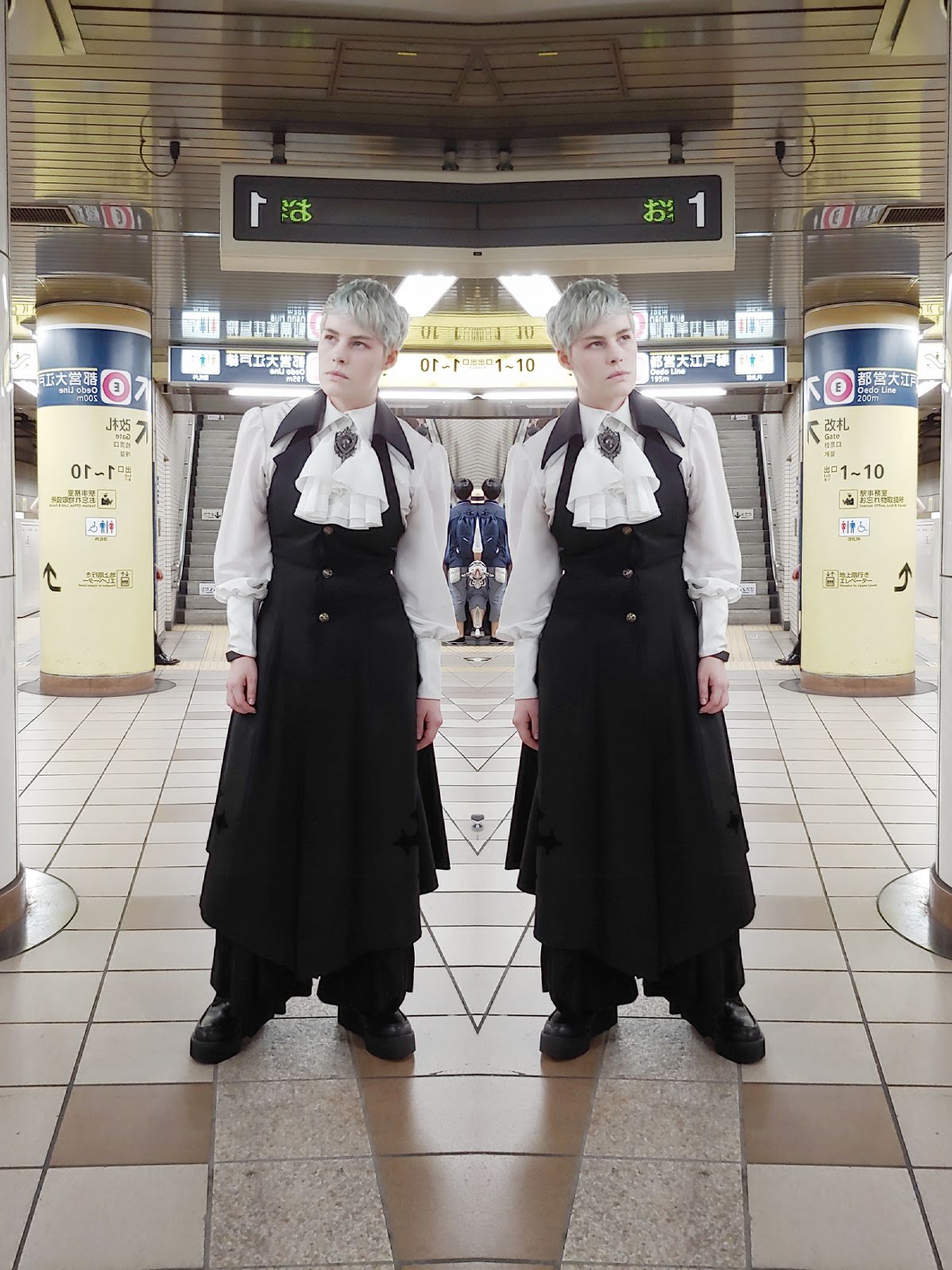
Kal Frenzel. Photo by Collin Quinlan or Bree Love (I can’t remember!)
Though overused, it is a bit overused for a reason. Mirroring your outfit shot can help hide things you don’t want to be seen. For example, in the shot above, there was a woman looking straight at the camera, most likely wondering why we were taking photos of something so ordinary to her. The way she was standing, and how close she was to me, made it impossible to crop or clone her out. Mirroring enabled me to get her out of the photo without publishing a bad edit. (And let’s face it, she probably didn’t want to be in the photo anyway!)
Have Your Photographer Pose First
This is a trick I learned from a YouTuber and Instagram fashion personality who has other people take photos of him (with a phone) nearly every day: take a photo of them like the photo you want them to take of you, then ask them to duplicate the photo. It can be difficult to describe how you want someone to compose a photo, and this can really, really help in a pinch, especially when you’re in a hurry.
My girlfriend takes most of the cell phone photos of me. When we first started, it took a bit of explanation to make her see my style and how I like my photos: dead center, clean, and minimal. She enjoys a lot of angles and off-center photos herself, and once we were able to figure that out about each other, it became a lot easier to shoot for each other and get something we were both happy with. It would have been easier to explain to her, though, if I had known about this little trick beforehand!
The Blank Wall
There’s a reason it’s a classic. A blank wall removed any temptation for the viewers to be distracted by the background. All the focus is on you, your coordinate, and your pose. A contrasting wall is a great option when you have a super complex and intricate coord and you really want other people to be able to see every single detail. Or, make a statement with a minimalist coordinate and go all out.
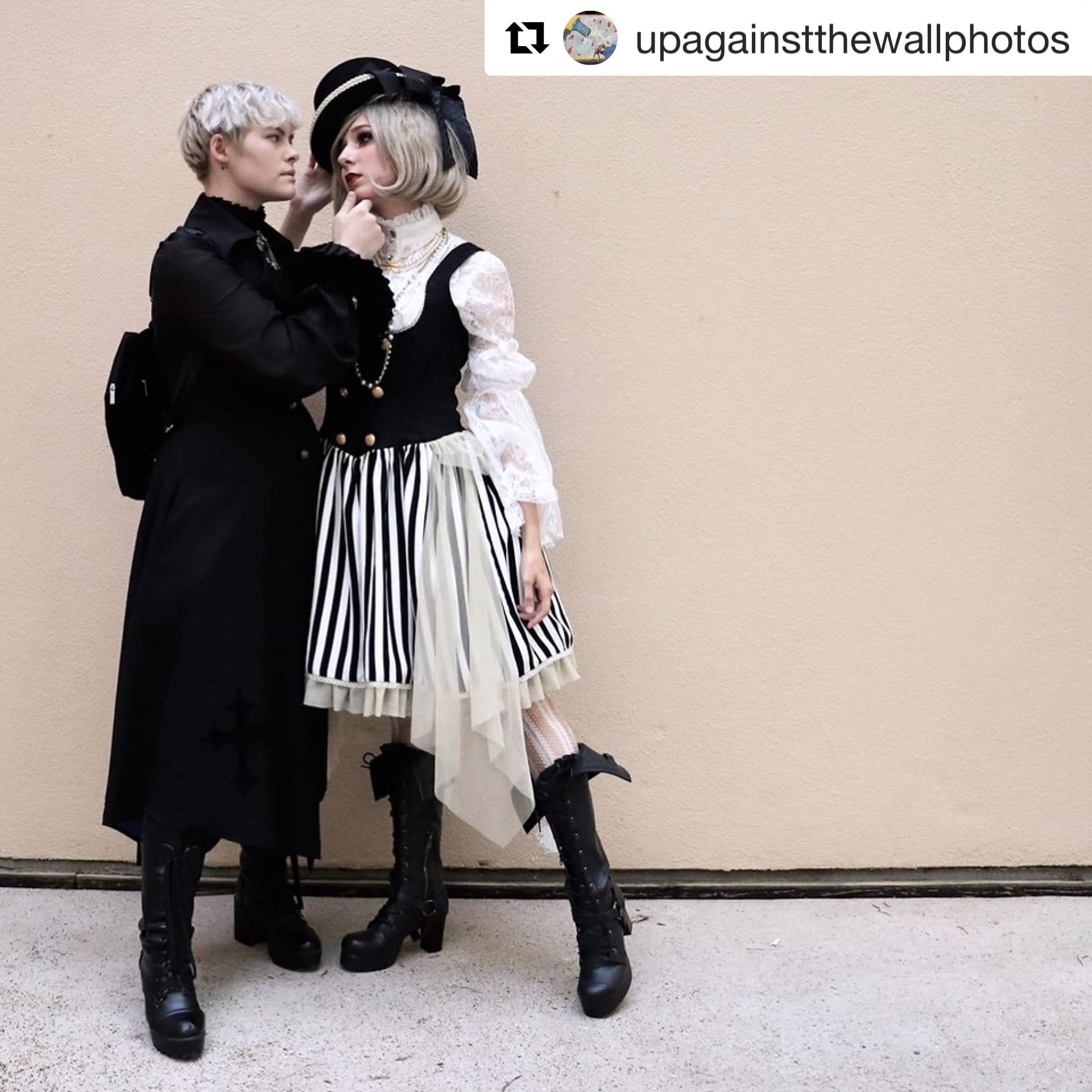
Kal Frenzel and Becky Maset. Photo by @upagainstthewallphotos on IG
Not Every Great Photo Was Taken With a Good Camera
But the ones in this section were.
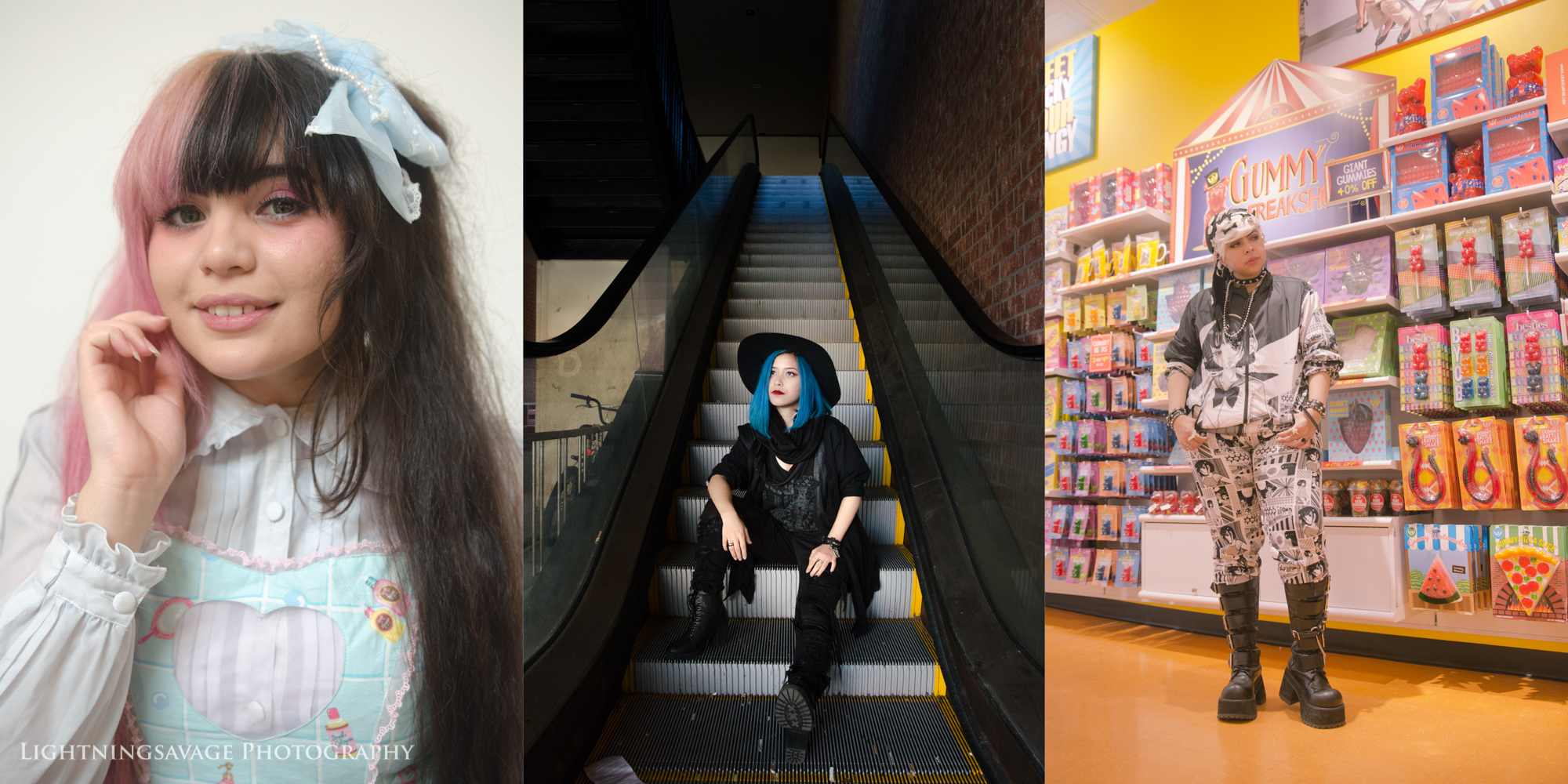
Sally Asbury | Ba Bouth-Ly | Chey Skye for Ota-Q
I included this section as an example. The photos directly above and below this paragraph were taken with my DSLR and edited in Lightroom as a professional and part of a professional shoot. But the reason I included them here is to illustrate that they could have been taken with a cell phone. There’s nothing in these photos that would prevent someone like you from taking them as well!
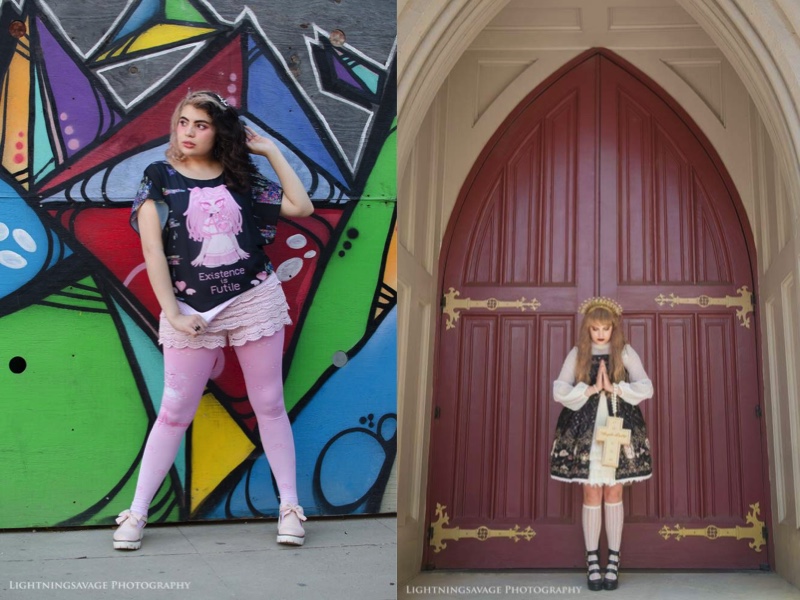
Sally Asbury modeling for Puvithel. Catherine Alvarado.
Thanks for reading this! I’ve been wanting to make this post for a while and I figured that it would be a welcome break from all this posing information! So have some photography instead 🙂
Kal from Lightningsavage Photography specializes in creative portrait photography for J-Fashion enthusiasts and more. He has served as the J-Fashion event photographer for Oni-Con 2016–2020, as well as fashion shows, meetups, and personal shoots. He is also a co-owner of Kuroshiro Kawaii. You can follow him on Instagram at @lightningsavage_photography and @kaldec_
He is currently into visual kei and EGA fashions.




